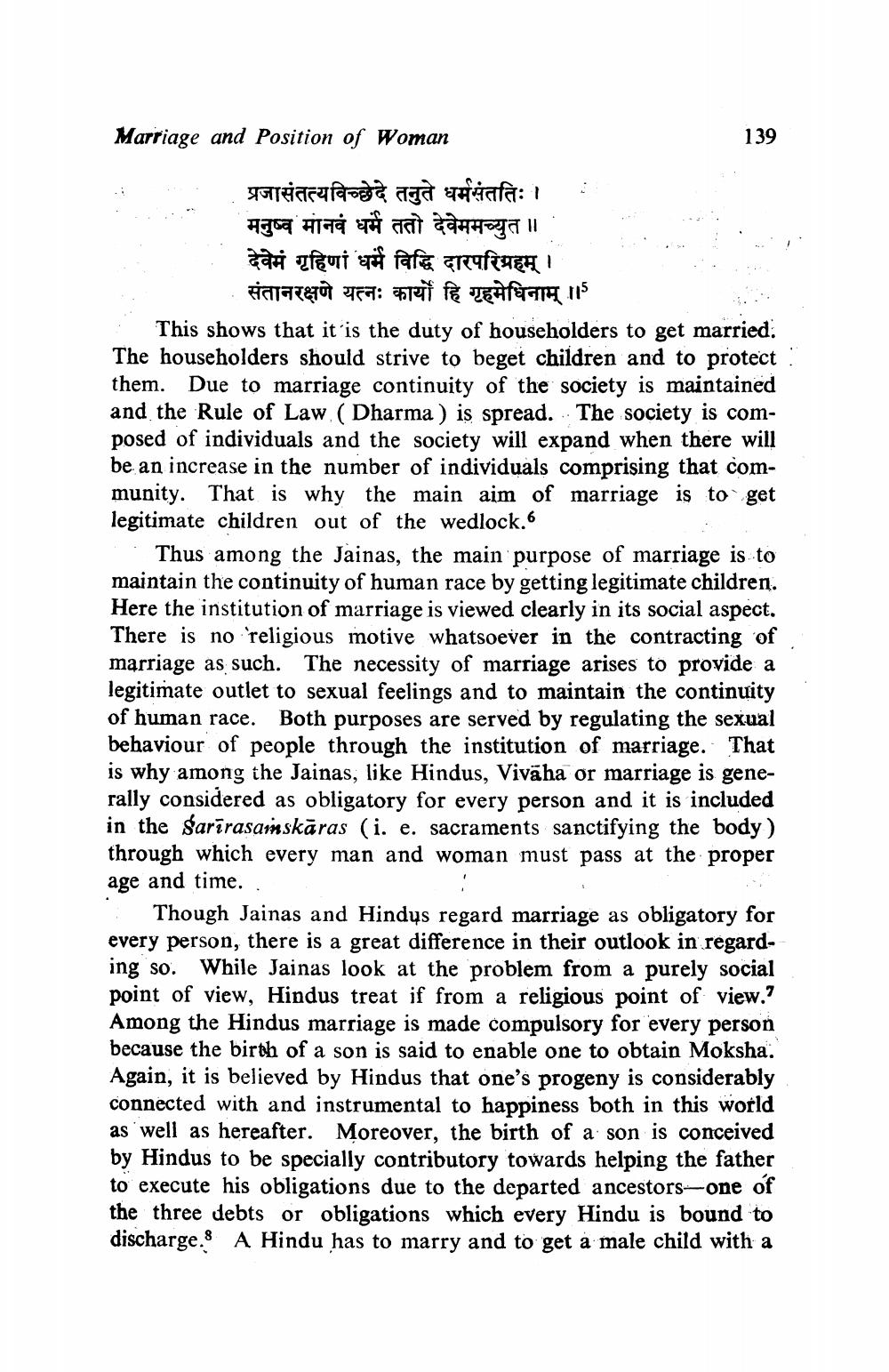________________
Marriage and Position of Woman
139 प्रजासंतत्यविच्छेदे तनुते धर्मसंततिः। मनुष्व मानवं धर्म ततो देवेममच्युत ।। । देवेमं गृहिणां धर्म विद्धि दारपरिग्रहम् ।
संतानरक्षणे यत्नः कार्यों हि गृहमेधिनाम् ।। This shows that it is the duty of householders to get married. The householders should strive to beget children and to protect them. Due to marriage continuity of the society is maintained and the Rule of Law, ( Dharma ) is spread. The society is composed of individuals and the society will expand when there will be an increase in the number of individuals comprising that community. That is why the main aim of marriage is to get legitimate children out of the wedlock.
Thus among the Jainas, the main purpose of marriage is to maintain the continuity of human race by getting legitimate children. Here the institution of marriage is viewed clearly in its social aspect. There is no religious motive whatsoever in the contracting of marriage as such. The necessity of marriage arises to provide a legitimate outlet to sexual feelings and to maintain the continuity of human race. Both purposes are served by regulating the sexual behaviour of people through the institution of marriage. is why among the Jainas, like Hindus, Viväha or marriage is generally considered as obligatory for every person and it is included in the garīrasamskāras (i. e. sacraments sanctifying the body) through which every man and woman must pass at the proper age and time..
Though Jainas and Hindus regard marriage as obligatory for every person, there is a great difference in their outlook in regarding so. While Jainas look at the problem from a purely social point of view, Hindus treat if from a religious point of view.? Among the Hindus marriage is made compulsory for every person because the birth of a son is said to enable one to obtain Moksha. Again, it is believed by Hindus that one's progeny is considerably connected with and instrumental to happiness both in this world as well as hereafter. Moreover, the birth of a son is conceived by Hindus to be specially contributory towards helping the father to execute his obligations due to the departed ancestors--one of the three debts or obligations which every Hindu is bound to discharge. A Hindu has to marry and to get a male child with a




